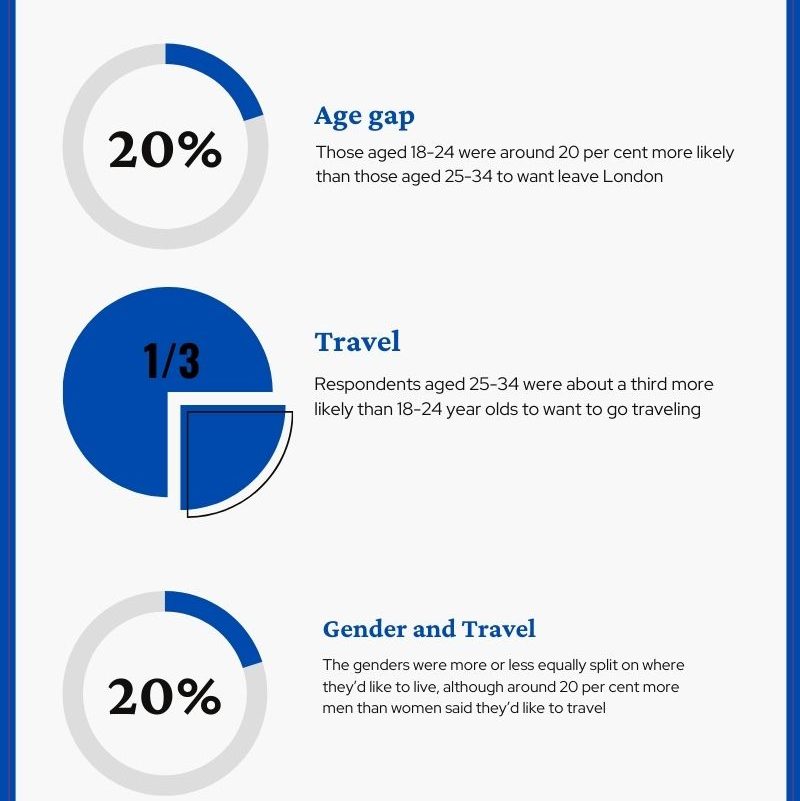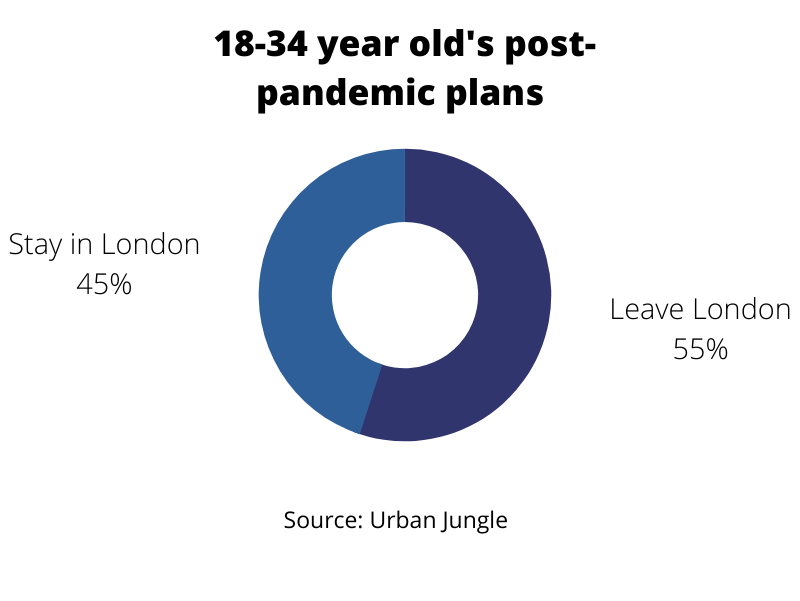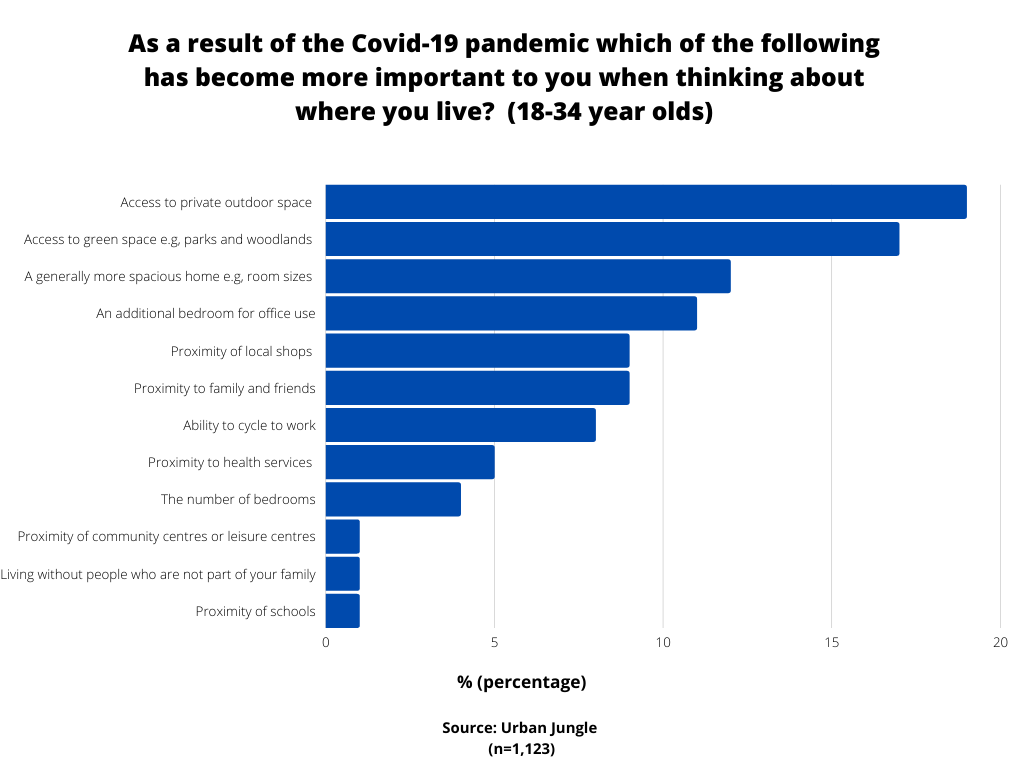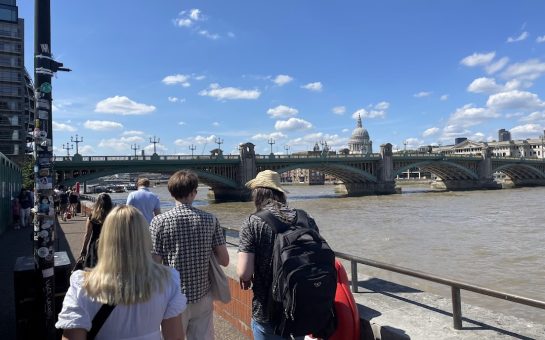The majority of 18-34-year-olds residing in London plan to move out of the capital post-pandemic, research has revealed.
A recent survey carried out by Insurtech company Urban Jungle, revealed that 55% of 18-34-year-olds living in the capital have expressed a wish to move and are already considering living elsewhere.
Within this 55%, 19% opted to live in a greener area such as a village or the countryside.
Around 8% of respondents said they wanted to live in a different city and 9% of young people expressed a desire to travel.
The young Londoners were not massively divided by age bracket or gender, bar a few exceptions.

Source: Urban Jungle
A young couple’s change of heart
Hamptons Estate Agents research revealed first-time buyers make up over a third of households buying outside of London, up by 29% from 2019.
The pandemic has changed young adults’ opinions on where to settle, and for first-time buyers, it has also changed property specifications.
Sarah Cheetham, 28 and partner Mark, 32 were renting a flat in Wood Green but due to the pandemic, they have plans to move out of the capital.
Cheetham is originally from Leeds and has lived in London for three years, whereas her partner is originally from Sheffield but has been settled in London for the past ten years.
Cheetham said: “I used to come to London all the time as a kid and I just loved the city. I’m from quite a small town up north and I wanted that city experience.”
After renting in north London the couple had plans to settle and buy a property, but during the middle of the pandemic the seller pulled out.

After the property fell though, the couple moved back to Sheffield for a few months.
This experience completely changed their outlook on settling in London and they are now planning to move back full time.
Cheetham said: “When we were up north, we stayed near the peaks and it was so peaceful, we were surrounded by open fields and nature and this has only drawn us away from London.”
Within Urban Jungle’s survey, the question was presented: “As a result of the COVID-19 pandemic, which of the following has become more important to you when thinking about where you live?”.
Top answers came from 19% voting for access to more private outdoor space and 17% opting for proximity to public green space e.g, parks, commons, woodlands.

Cheetham said: “A spacious house for us now is a massive thing. In Wood Green we live in a flat, with a tiny post stamp garden that you can’t really do much in.
“The house we could get with our money in the north of England compared to London is worlds apart.
“In North London we were looking at a one bed flat in Bounds Green and that was £400,000.
“In Sheffield or Leeds we could get a four or five bedroom house with a proper garden for the same amount.
“Because we are getting older, we are thinking about having kids. It is really important to have more space for them.”
Analysis
Spencer Isaac from Barking and Dagenham Housing concluded that the driving force for young adults moving out of London is the affordability of accommodation and the need for greater space.
He said: “Those looking for a house before the pandemic had an idea on the type of property they wanted, but now attitudes have changed and their requests are more specific because of the pandemic experience.
“Many property seekers who were considering a flat before are no longer considering this.
“A lot of people are now looking for a house where they can have extra room for office space and also outdoor space like a garden.
“Local authority has always considered requests for a property with a garden as an unrealistic goal, but because of the pandemic people can argue that it’s crucial for their mental wellbeing.”
Isaac also highlights that working from home opportunities and the development of technology allows young people more freedom.
Isaac added: “Before the pandemic working from home was considered a privilege and was mostly given to senior staff, but now more people have had the opportunity to work from home.
“There has been a realisation that as long as you have an internet connection, you can work from anywhere in the world.
“This has given more young adults the ability to decide if they want to move out of London and other cities to live a stress-free life whilst doing the job they love.”




